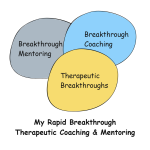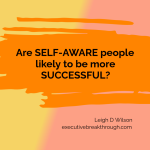Leigh D Wilson
The problems that people think they have are often not the problems they ACTUALLY have!
I help people let go of persistent Inner Struggles – things like anxiety, stress, overwhelm, feeling not good enough, self-esteem issues, weight issues, smoking issues and things like that.
In fact, these things are normally symptoms of an underlying root cause that’s sat with them for many, many years, maybe decades.
Often these issues are due to things that have happened in between the ages of about zero to seven, which is known as the Imprint Period and over these years a young child will take everything that they’ve been told as being absolutely true. That’s obviously important for their survival because they can’t afford to argue as their safety depends on them accepting the advice of their carers.
So, at this stage in life, of course, their brains aren’t fully developed and so they can often misunderstand things that have been said and take them to heart at a deep and an unconscious level and of course carry them around with them for the later years of their life. Often, it’s not until later on when things crop up that these unconscious misleading beliefs, these misleading emotions, limiting decisions can hold somebody back and give rise to the Inner Struggles that that we were talking about.
Because these are at an unconscious level, you can’t really let go of them yourself at a conscious level and that’s where the techniques I use can be very, very effective.
If you want to learn more about this click on one of the links on one of my sites.
Thank you
Edited transcript







